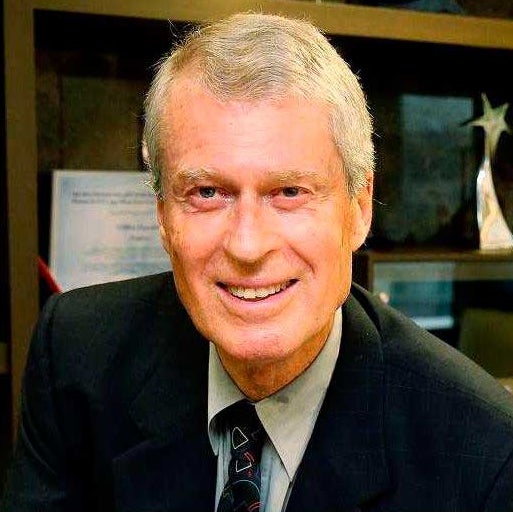World-renowned hydrogeologist and groundwater advocate Dr. John Cherry to present the Water Institute’s WaterTalks lecture on Wednesday, January 18, 2023

The Water Institute in collaboration with the Faculty of Science, Department of Earth and Environmental Sciences, is delighted to welcome Dr. John Cherry, Distinguished Professor Emeritus, Hydrogeology, as the opening lecturer for the 2023 WaterTalks lecture series. The lecture will be presented on Wednesday, January 18 and is free to the campus community, alumni and the public.
A professor and world-renowned hydrogeologist in the Department of Earth and Environmental Sciences for more than three decades, Cherry was one of the outstanding faculty members who made the Department of Earth and Environmental Sciences a world leader in hydrogeology.
He joined the University of Waterloo in 1971 as one of three pioneering scientists hired by Robert Farvolden, the former chair of Earth Sciences and Dean of Science. At the time, contaminant hydrogeology or field research on the migration and fate of contaminants in groundwater and their remediation was in its infancy.
Cherry actively participated in the development of technologies for improving groundwater monitoring and remediation. In the 1980s, he established the Borden Groundwater Field Research Facility. The site continues to be used by international researchers to discover major scientific insights about groundwater flow, as well as the movement and fate of subsurface contaminants.
He is also known for co-authoring the textbook Groundwater with R.A. Freeze in 1979, which remains the standard text in hydrogeology courses taught worldwide.
“It is because of the legacy of John Cherry and others that the University established the Water Institute,” said Water Institute Director, Professor Roy Brouwer.
His major scientific findings include demonstrating the forces controlling groundwater flow and contaminant transport within confining aquitard layers, knowledge which policymakers have incorporated into selecting safe sites for hazardous waste disposal.
He also developed better ways to deal with dense non-aqueous phase liquids (DNAPLs), a class of common yet difficult to remediate industrial contaminants because of their unusual behavior. His targeted in-situ treatment and risk management approach resulted in new groundwater remediation guidelines in the United States, replacing expensive, ineffective pump-and-treat remediation.
Although he retired from Waterloo with the title Distinguished Professor Emeritus in 2006, he remains active in research and is a Principal Investigator at the Morwick G360 Groundwater Research Institute at the University of Guelph and Project Leader for the Groundwater Project, a project aimed at democratizing groundwater education globally. He is also the Director of the University Consortium for Field-Focused Groundwater Contamination Research.
Among his many career honours, he co-holds several patents, is a Fellow of the Royal Society of Canada, and a Foreign Member of the U.S. Academy of Engineering. He was the Chair of the Canadian Expert Panel on the environmental impacts of shale gas development. He has received awards from the USA, UK, Switzerland, Canada, Singapore (Lee Kuan Yew Water Prize, 2016), IAH President’s Award (2019) and the 2020 Stockholm Water Prize.
There is no doubt that he has a major international reputation and continues to influence hydrogeologists around the world.
Join us on January 18 for his lecture: The Global Water Crisis Paradox: Groundwater, Food and Poverty, which is open to the public and free of charge. Visit the event webpage for details and registration.